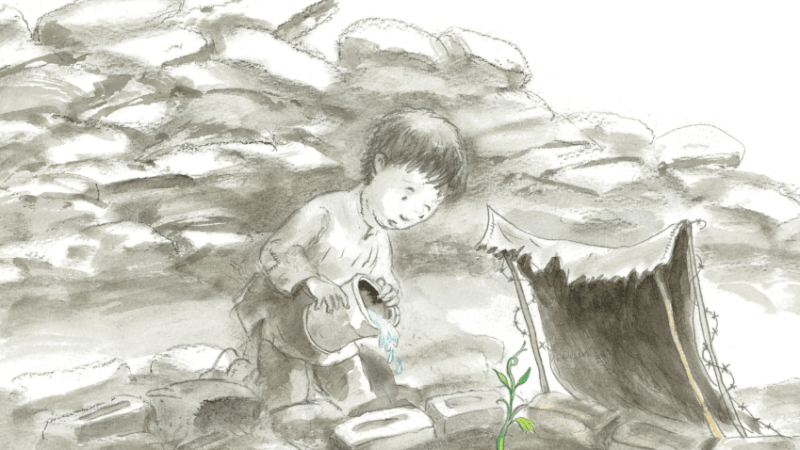Phizz-whizzing! – See In The New School Year With A Gloriumptious Celebration Of Road Dahl’s Writing

Get your kiddies reading for pleasure by harnessing the excitement surrounding Roald Dahl’s 100th birthday…

As one of the world’s best-loved authors, Roald Dahl has probably done more to help children to see the joy of reading than anyone else. Often imitated, never bettered, generations have fallen in love with his books.
This year, the spirit of joy, laughter (and gruesomeness) unique to his work will be marked on September 13th – what would have been Roald Dahl’s 100th birthday – by Roald Dahl Day. Schools across the country will be filled with excited children, who are being encouraged to dress as their favourite Road Dahl character or wear his favourite colour, yellow. But how can we extend this feeling of positivity beyond the day itself? How can we use a day of excitement and fun, with books at the centre, to help to build a lasting reading culture where everybody chooses to read? Here are seven tried-and-tested suggestions:
1. Read one of Roald Dahl’s books
So simple, and yet so effective. Ask everyone to put aside their current text for a week and the whole class can read a Roald Dahl book. Although children will all be reading different books (there is a Roald Dahl book for every stage of reading development), a shared enterprise will give them plenty to talk about and help to create a buzz about books.
2. Hold a team reading challenge
Individual reading competitions can be very motivating, but setting children against each other doesn’t help to build a class community of readers. A team challenge takes the best elements of a competition, but encourages children to work together. For Roald Dahl Day, some good challenges might include:
• As a class, reading all of Roald Dahl’s children’s books in a week You can plan who will read which book, sharing them out amongst the class. Then the children can get started, filling every spare moment with reading until they’re done. Remember to keep a record as you go!
• Reading to Great Missenden Use a map app to calculate how far it is from your school to Roald Dahl’s home in Great Missenden, Buckinghamshire. Set your class the challenge of reading a book for every mile and count how long it takes you to read them and reach your goal.
Different classes could compete to see who gets there first. Apologies to schools overseas – it’s going to take a while…
• Creating a ‘Dahlopedia’ As children will have read different Roald Dahl texts, everyone can contribute different pages about objects, characters and places in the books. If there are any gaps, then the children will have to get reading.
3. Run a Dahlicious X-Factor assembly
Each class can take a different story to read, enjoy and then champion. Representatives from the class can stand up in assembly and try to persuade the rest of the school why their book is the best. Once the voting is done, you’ll have a winner (although not everyone has to agree with the result!).
4. Hide golden tickets around the school
Children are often very excited about new arrivals to the book corner or library, but can sometimes be reluctant to take a chance on some of the older books in the school. One way to encourage them is to hide Willy Wonka-style golden tickets in a selection of older books. If the children find a ticket, they have to read the book first and then take it along to the literacy coordinator or librarian afterwards (who will ask them a few questions to check that they’ve read it).
They can then swap their golden ticket for a bookmark or other small prize. Who knows, there might be a future favourite lurking among the dusty shelves…
5. Perform a poem in assembly
Hold a special assembly for individuals or groups of children to read or recite a poem aloud. Certificates can be awarded for their performances. As they’re reading Roald Dahl poems, it should be fun for the audience, with plenty of gruesome creatures and amusing words.
6. Introduce reading buddies
As part of your Roald Dahl Day celebrations, children from across the school could be paired together as reading buddies, coming together to share a book. Younger children love the excitement of an older child coming to read with them, and they can benefit from the opportunity to read aloud to someone who they look up to.
It can also be a positive experience for older children. They can thrive on the responsibility of being a reading buddy, taking on the role of the expert and supporting someone else’s progress. It also helps them to be conscious about what makes a good reader and this can have an impact on their own reading. Who knows, if it works well for the week, perhaps it could become a regular occurrence?
7. Read Matilda aloud
This classic of children’s literature is an ode to the transformational power of reading. As teachers, we want children to read because it will support them in their education. We want children to read because it can be a source of great joy. But we also want children to read to expand their horizons; to introduce them to great ideas and exquisite language. To take them beyond their current life experience and see the world though the eyes of other people. Where better to end than with the words of Roald Dahl himself – “So Matilda’s strong young mind continued to grow, nurtured by the voices of all those authors who had sent their books out into the world like ships on the sea. These books gave Matilda a hopeful and comforting message: You are not alone.”
Make your Roald Dahl Day a success!
• Register for an information pack at www.roalddahl.com. The site itself is packed with resources, teaching materials and lesson plans to help bring Roald Dahl’s books to life.
• Involve the community – work with parents, the local library and even local bookshops to coordinate the day and put reading at the heart of the celebration.
• Put it in the diary now – schools are busy places, so making sure everyone is informed in advance is crucial for success.
• Think about any particular issues with reading that are unique to your school – parental involvement? Children choosing books? Children choosing to read independently? How could you tailor the day to meet your particular challenges?
James Clements is an English adviser and the creator of shakespeareandmore.com; you can follow him at @James_ShMore









